
The word "motorcycle" often conjures up images of tattooed men wearing black leather jackets. Not so in Marrakech. The city's thriving bike culture includes plenty of women. With their polka dot veils and heart-shaped sunglasses, they're steering motorcycle fashion in their own direction.
Photographer Hassan Hajjaj has been snapping Marrakech street style and female cyclists for decades. Many of the subjects are his own friends, who he playfully calls Kesh Angels in his latest exhibition, which runs at New York's Taymour Grahne Gallery until March 7.
The exhibition show tradition mingling with modernity. It also counters stereotypes about Muslim women.
"When Westerners see a women with the veil a lot of them think, 'Do they really ride a bike?'" Hajjaj says. "If these women were in Italy they would look past that."
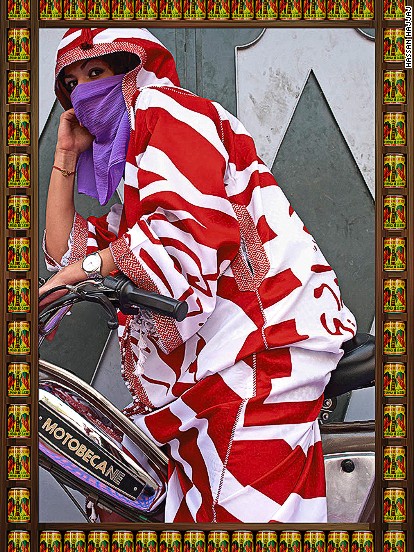
Hajjaj hoped to showcase Marrakech as it is, replete with its vibrant fashion and confident women. Here, a woman wears a traditional djellabah robe and poses on her Motobecane. "If you take a person who doesn't travel and who watches TV, they might view Morocco as another Syria or Iraq," Hajjaj says. "But it's its own country with its own vibe."
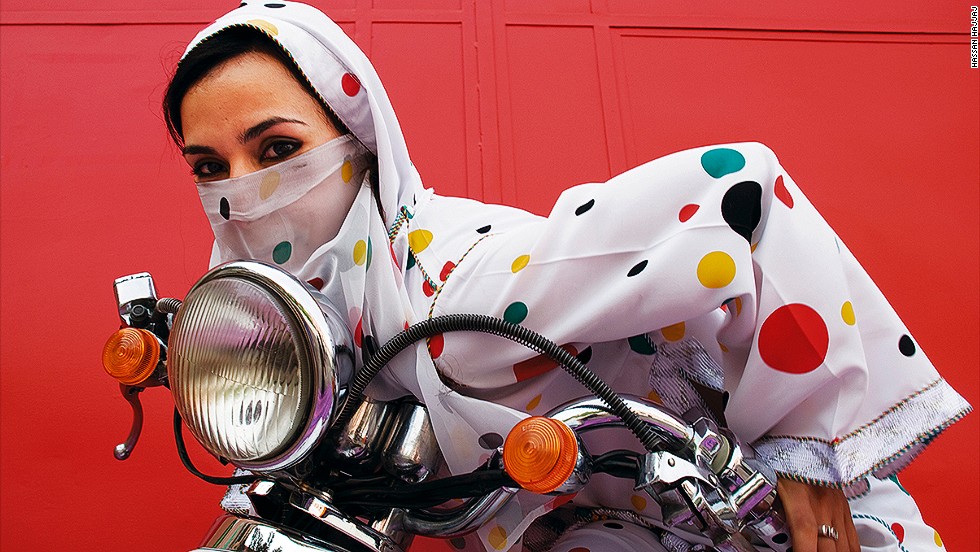
And that vibe includes plenty of independent women. Marrakech motorcycle culture welcomes everyone and society does not look down on female riders. "Journalists often ask, 'What do you think of women being covered up?'" Hajjaj says. "I find that silly. It's traditional clothing. It's not like anyone is holding a staff over them."
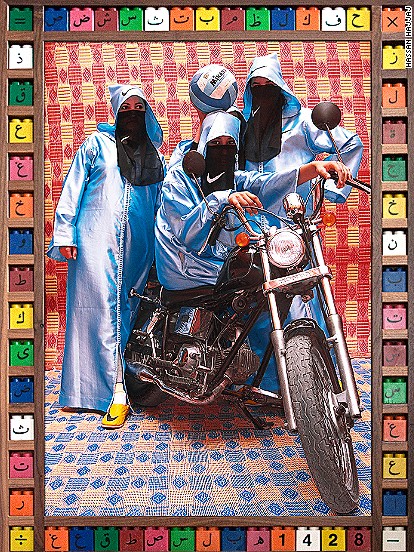
Hajjaj, who moved to London from Morocco at the age of 13, remembers how he and other immigrant children would sew name brand logos onto their jeans and shoes. That phenomenon transcends borders and time, as with these women who wear djellabah with the Nike swoosh. "In the so-called Third World there are many people wearing this to keep up with the westerners," Hajjaj says.
Hajjaj has been photographing Karima for 15 years. "She is one of my heroes," he says. "She does henna, is married, has two kids and works hard. She has swagger and speaks three languages."
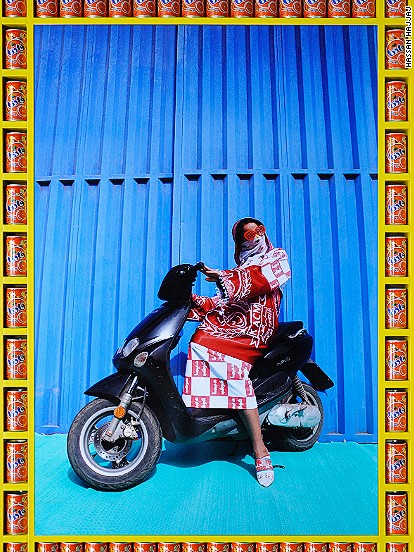
In 1984 Hajjaj owned a London fashion boutique called RAP, short for Real Artistic People. "Sometimes the women have their own clothes and I photograph them in things they are wearing," he says. "Sometimes I add on stuff."
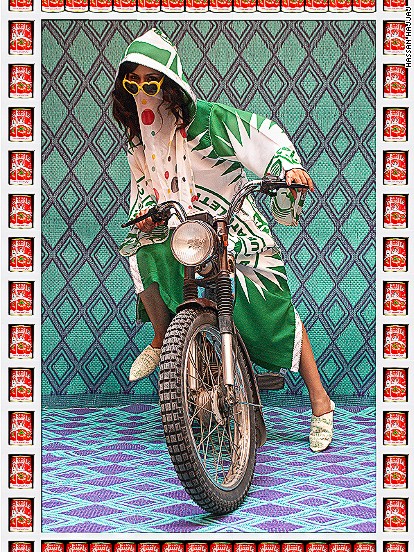
Finding locations for the photos came easy in Marrakech. "The medina and the new town were big inspirations," Hajjaj says. "Normally you have to fly seven hours from London to reach a place with such 'foreign style.'" He can be in Marrakech in half the time.



0 comments:
Post a Comment